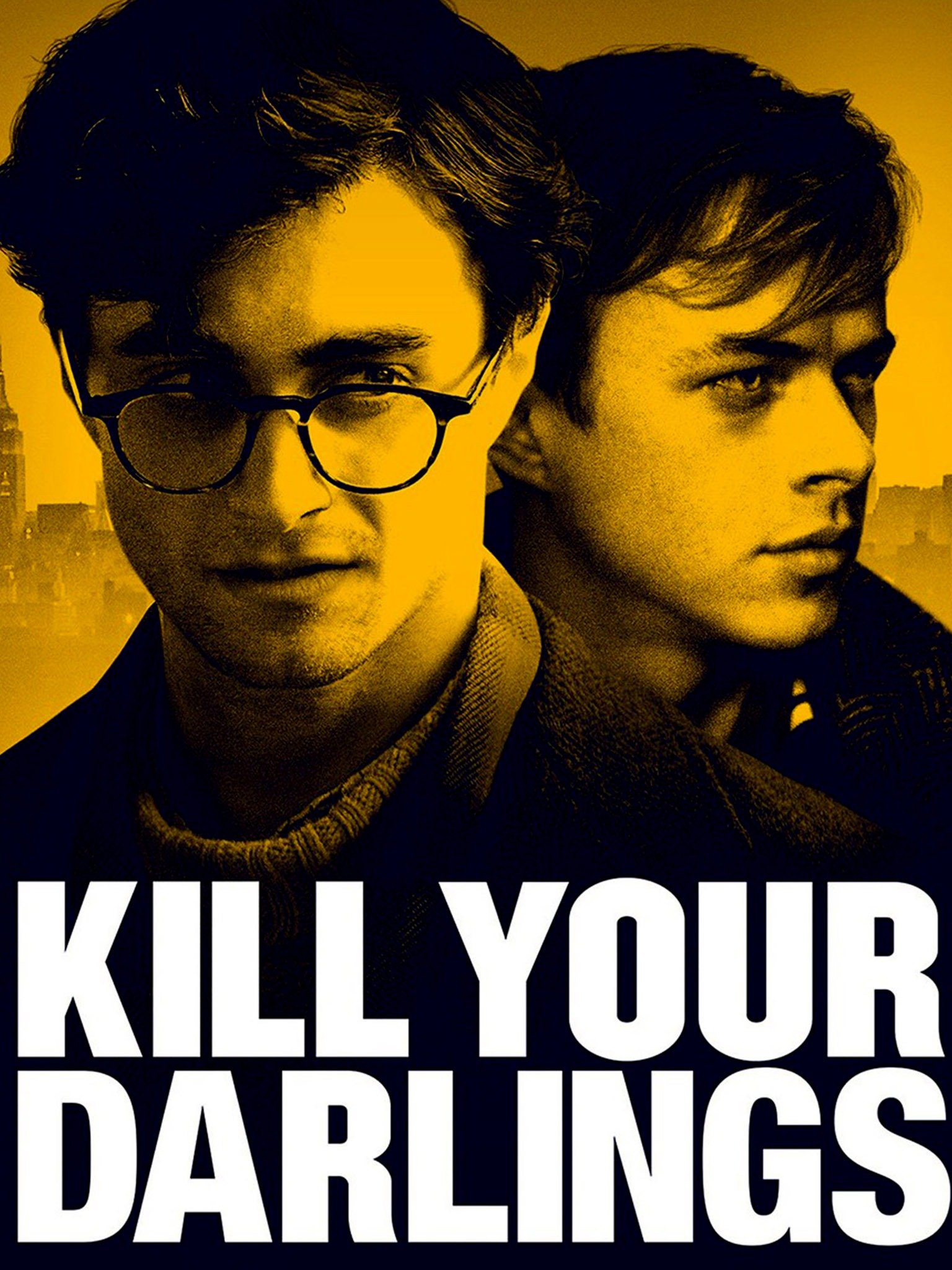KILL YOUR DARLINGS
| (director/writer: John Krokidas; screenwriter: story and screenplay by Austin Bunn; cinematographer: Reed Morano; editor: Brian A. Kates; music: Nico Muhly; cast: Allen Ginsberg (Daniel Radcliffe), Dane DeHaan (Lucien Carr), Ben Foster (William Burroughs), Jack Huston (Jack Kerouac), Elizabeth Olsen (Edie Parker), Michael C Hall (David Kammerer), John Cullum (Professor Steeves), Jennifer Jason Leigh (Naomi Ginsberg), David Cross (Louis Ginsberg), Kyrie Sedgwick (Mrs. Carr), Brenda Wehle (Permissions Librarian), David Rasche (Dean); Runtime: 103; MPAA Rating: R; producer: Christine Vachon/Rose Ganguzza/John Krokidas; Sony Picture Classics; 2013) |
” It’s Radcliffe’s engaging tortured performance that satisfactorily takes us into the revolutionary Beat scene in NYC.”
Reviewed by Dennis Schwartz
Writer-director John Krokidas (“Slo-Mo”), in his directing feature film debut, nails the “Beat Generation” scene in this observant drama. It accurately captures the feel of the 1940s, even if in a seemingly stagy way, as we observe the pre-war years, the jazz age in Harlem and the liberating new poetry of the period. It’s based on the compelling story by Austin Bunn, and the screenplay he co-wrote with the director. The title is derived from a line used by the Columbia poetry professor (John Cullum) Allen Ginsberg deplored, who tells the class that to “Kill your darlings” is what writers say when they want to rid themselves of unnecessary words and phrases. It will also later refer to a murder that actually happened in real life.
In 1944, the nerdy Allen Ginsberg (Daniel Radcliffe) gets accepted into Columbia University, leaving his Paterson, N.J. home of his respectable poet/teacher father (David Cross) and his mentally ill, soon to be institutionalized, mother Naomi (Jennifer Jason Leigh) to reside on the campus. At Columbia, the freshman falls for the engaging literary student Lucien Carr (Dane DeHaan), who when not getting on top of his classroom desk to recite controversial erotic Henry Miller verses is involved in a love-hate relationship with his older homosexual ex-professor, David Kammerer (Michael C Hall), who has followed him from Chicago to New York. Allen through Lucien meets the hunky married former merchant marine, adventurer, Jack Kerouac (Jack Huston), an aspiring writer and Columbia football player now involved with the aspiring writer Carr. The other close friend of the boys is William S. Burroughs (Ben Foster), who espouses his radical decadence, drug use and rejection of his wealthy family’s values.
The four student bad boys kick off a literary revolution by using Allen’s suggestion that the group call themselves The New Vision, as lifted from Yeats, as they revolt against traditional poetry and art by calling for “new words, new rhythms and new visions.”
Because the jealous Kammerer can’t let go of the enticing Carr the young man, who can’t make up his mind if he’s a homosexual or a hetersexual, in a fit of confusion, callously stabs his mentor/lover and tosses his bloody body while still alive into the Hudson River to drown.
This grim tale is told from before Allen got his hipster act together and became the iconic peace poet of his generation. Allen and the other Beats don’t look so good here. But the sordid film looks and feels right, even if the story is a downer.
Foster as Burroughs gives a killer performance, one that commands every scene he’s in. Dane DeHaan as Lucien superbly plays the complex and manipulative sex object, who is always seeking some kind of attention and new thrill. While the main thrust of the film is that of Radcliffe, showing how Allen navigated that tragic incident of lust gone awry and the bouts of drug abuse to free himself sexually to get his bearings to become a legendary poet. It’s Radcliffe’s engaging tortured performance that satisfactorily takes us into the revolutionary Beat scene in NYC and makes us notice that somehow many generational artists were emerging from such intellectual posing in the Beat scene. It’s a film that nearly collapses from its vapid dramatics, as it veers too close to being insufferable.

REVIEWED ON 8/24/2017 GRADE: B-